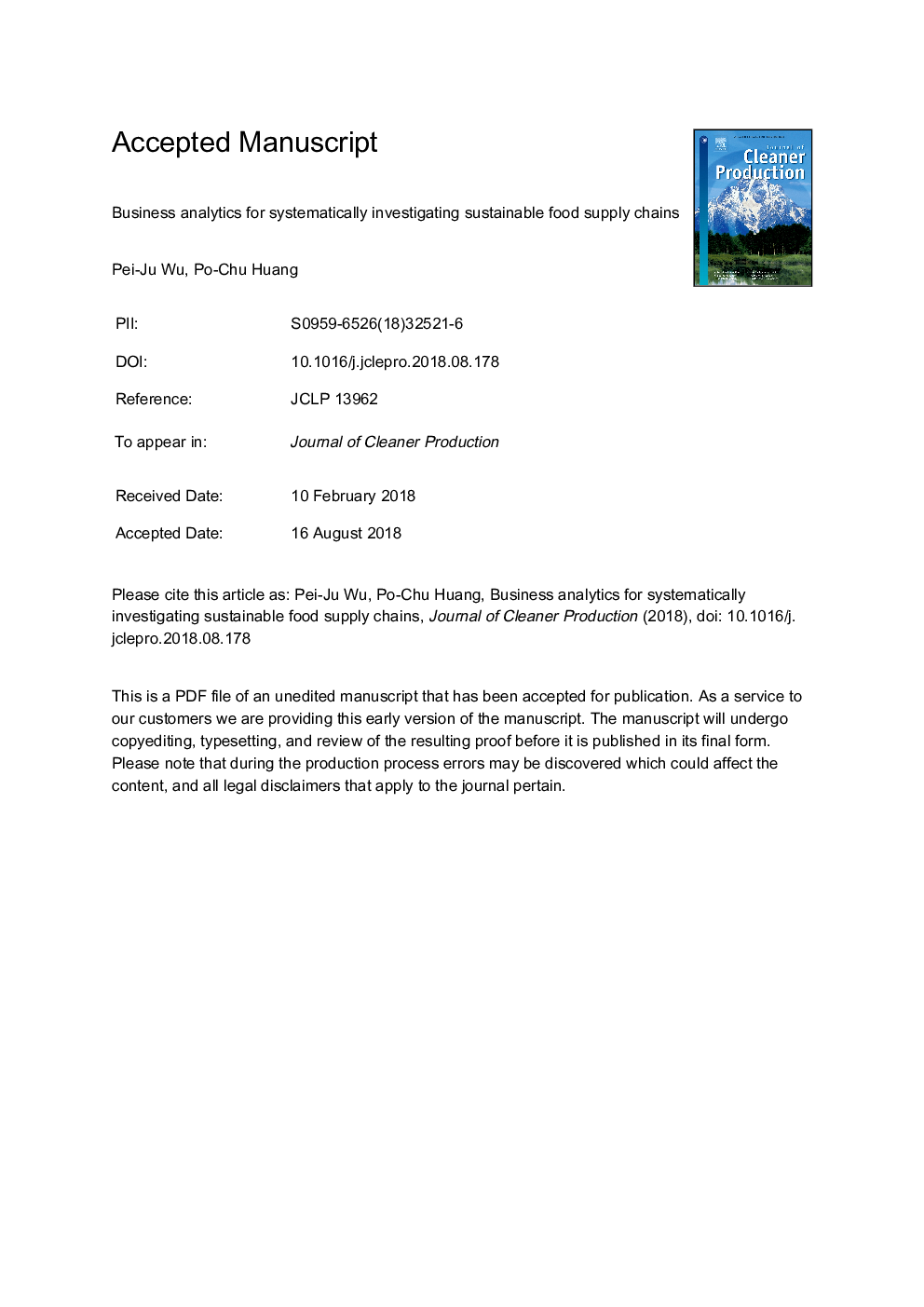| Article ID | Journal | Published Year | Pages | File Type |
|---|---|---|---|---|
| 10142657 | Journal of Cleaner Production | 2018 | 39 Pages |
Abstract
From farm to fork, food supply chains threaten the environment in a range of different ways. Stakeholders in food chains seeking to go green have a twofold problem, comprising limited resources and too many eco-options to choose from. Hence, this study aims to narrow the field of such options, based on a careful assessment of past successful choices when going green. Specifically, it utilizes business analytics to derive insights on food supply chains' environmental sustainability from numerous data sources, and transforms this intricate information into managerial knowledge of food supply chains in general, and sustainable food supply chains in particular. The analytical results reveal eight crucial characteristics of sustainable food supply chains: devices/software, eco-innovation, organizational culture, warehousing, transportation, food loss/waste, equipment, and regulation. Among these, the two most important drivers of successful sustainability implementation are found to be eco-innovation and food loss/waste. Lastly, this study applies relational view theory and natural resource based view theory to the analytical results to create new sustainable food chain strategies and to extend the application of those theories to sustainable food chain management.
Related Topics
Physical Sciences and Engineering
Energy
Renewable Energy, Sustainability and the Environment
Authors
Pei-Ju Wu, Po-Chu Huang,
